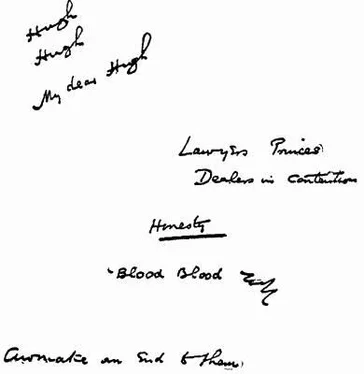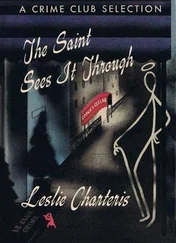Herbert Wells - Mr. Britling Sees It Through
Здесь есть возможность читать онлайн «Herbert Wells - Mr. Britling Sees It Through» весь текст электронной книги совершенно бесплатно (целиком полную версию без сокращений). В некоторых случаях можно слушать аудио, скачать через торрент в формате fb2 и присутствует краткое содержание. Жанр: Классическая проза, на английском языке. Описание произведения, (предисловие) а так же отзывы посетителей доступны на портале библиотеки ЛибКат.
- Название:Mr. Britling Sees It Through
- Автор:
- Жанр:
- Год:неизвестен
- ISBN:нет данных
- Рейтинг книги:4 / 5. Голосов: 1
-
Избранное:Добавить в избранное
- Отзывы:
-
Ваша оценка:
- 80
- 1
- 2
- 3
- 4
- 5
Mr. Britling Sees It Through: краткое содержание, описание и аннотация
Предлагаем к чтению аннотацию, описание, краткое содержание или предисловие (зависит от того, что написал сам автор книги «Mr. Britling Sees It Through»). Если вы не нашли необходимую информацию о книге — напишите в комментариях, мы постараемся отыскать её.
Mr. Britling Sees It Through — читать онлайн бесплатно полную книгу (весь текст) целиком
Ниже представлен текст книги, разбитый по страницам. Система сохранения места последней прочитанной страницы, позволяет с удобством читать онлайн бесплатно книгу «Mr. Britling Sees It Through», без необходимости каждый раз заново искать на чём Вы остановились. Поставьте закладку, и сможете в любой момент перейти на страницу, на которой закончили чтение.
Интервал:
Закладка:
And having delivered himself of this judgment Mr. Britling, a little surprised at the rapid vigour of his anger, once he had let it loose, came suddenly to an end of his words, made a renunciatory gesture with his arms, and as if struck with the idea, rushed out of her room and out of the house to where Gladys stood waiting. He got into her and started her up, and after some trouble with the gear due to the violence of his emotion, he turned her round and departed with her—crushing the corner of a small bed of snapdragon as he turned—and dove her with a sulky sedulousness back to the Dower House and newspapers and correspondence and irritations, and that gnawing and irrational sense of a hollow and aimless quality in the world that he had hoped Mrs. Harrowdean would assuage. And the further he went from Mrs. Harrowdean the harsher and unjuster it seemed to him that he had been to her.
But he went on because he did not see how he could very well go back.
§ 7
Mr. Direck's broken wrist healed sooner than he desired. From the first he had protested that it was the sort of thing that one can carry about in a sling, that he was quite capable of travelling about and taking care of himself in hotels, that he was only staying on at Matching's Easy because he just loved to stay on and wallow in Mrs. Britling's kindness and Mr. Britling's company. While as a matter of fact he wallowed as much as he could in the freshness and friendliness of Miss Cecily Corner, and for more than a third of this period Mr. Britling was away from home altogether.
Mr. Direck, it should be clear by this time, was a man of more than European simplicity and directness, and his intentions towards the young lady were as simple and direct and altogether honest as such intentions can be. It is the American conception of gallantry more than any other people's, to let the lady call the tune in these affairs; the man's place is to be protective, propitiatory, accommodating and clever, and the lady's to be difficult but delightful until he catches her and houses her splendidly and gives her a surprising lot of pocket-money, and goes about his business; and upon these assumptions Mr. Direck went to work. But quite early it was manifest to him that Cecily did not recognise his assumptions. She was embarrassed when he got down one or two little presents of chocolates and flowers for her from London—-the Britling boys were much more appreciative—she wouldn't let him contrive costly little expeditions for her, and she protested against compliments and declared she would stay away when he paid them. And she was not contented by his general sentiments about life, but asked the most direct questions about his occupation and his activities. His chief occupation was being the well provided heir of a capable lawyer, and his activities in the light of her inquiries struck him as being light and a trifle amateurish, qualities he had never felt as any drawback about them before. So that he had to rely rather upon aspirations and the possibility, under proper inspiration, of a more actively serviceable life in future.
"There's a feeling in the States," he said, "that we've had rather a tendency to overdo work, and that there is scope for a leisure class to develop the refinement and the wider meanings of life."
"But a leisure class doesn't mean a class that does nothing," said Cecily. "It only means a class that isn't busy in business."
"You're too hard on me," said Mr. Direck with that quiet smile of his.
And then by way of putting her on the defensive he asked her what she thought a man in his position ought to do.
" Something ," she said, and in the expansion of this vague demand they touched on a number of things. She said that she was a Socialist, and there was still in Mr. Direck's composition a streak of the old-fashioned American prejudice against the word. He associated Socialists with Anarchists and deported aliens. It was manifest too that she was deeply read in the essays and dissertations of Mr. Britling. She thought everybody, man or woman, ought to be chiefly engaged in doing something definite for the world at large. ("There's my secretaryship of the Massachusetts Modern Thought Society, anyhow," said Mr. Direck.) And she herself wanted to be doing something—it was just because she did not know what it was she ought to be doing that she was reading so extensively and voraciously. She wanted to lose herself in something. Deep in the being of Mr. Direck was the conviction that what she ought to be doing was making love in a rapturously egotistical manner, and enjoying every scrap of her own delightful self and her own delightful vitality—while she had it, but for the purposes of their conversation he did not care to put it any more definitely than to say that he thought we owed it to ourselves to develop our personalities. Upon which she joined issue with great vigour.
"That is just what Mr. Britling says about you in his 'American Impressions,'" she said. "He says that America overdoes the development of personalities altogether, that whatever else is wrong about America that is where America is most clearly wrong. I read that this morning, and directly I read it I thought, 'Yes, that's exactly it! Mr. Direck is overdoing the development of personalities.'"
"Me!"
"Yes. I like talking to you and I don't like talking to you. And I see now it is because you keep on talking of my Personality and your Personality. That makes me uncomfortable. It's like having some one following me about with a limelight. And in a sort of way I do like it. I like it and I'm flattered by it, and then I go off and dislike it, dislike the effect of it. I find myself trying to be what you have told me I am—sort of acting myself. I want to glance at looking-glasses to see if I am keeping it up. It's just exactly what Mr. Britling says in his book about American women. They act themselves, he says; they get a kind of story and explanation about themselves and they are always trying to make it perfectly plain and clear to every one. Well, when you do that you can't think nicely of other things."
"We like a clear light on people," said Mr. Direck.
"We don't. I suppose we're shadier," said Cecily.
"You're certainly much more in half-tones," said Mr. Direck. "And I confess it's the half-tones get hold of me. But still you haven't told me, Miss Cissie, what you think I ought to do with myself. Here I am, you see, very much at your disposal. What sort of business do you think it's my duty to go in for?"
"That's for some one with more experience than I have, to tell you. You should ask Mr. Britling."
"I'd rather have it from you."
"I don't even know for myself," she said.
"So why shouldn't we start to find out together?" he asked.
It was her tantalising habit to ignore all such tentatives.
"One can't help the feeling that one is in the world for something more than oneself," she said....
§ 8
Soon Mr. Direck could measure the time that was left to him at the Dower House no longer by days but by hours. His luggage was mostly packed, his tickets to Rotterdam, Cologne, Munich, Dresden, Vienna, were all in order. And things were still very indefinite between him and Cecily. But God has not made Americans clean-shaven and firm-featured for nothing, and he determined that matters must be brought to some sort of definition before he embarked upon travels that were rapidly losing their attractiveness in this concentration of his attention....
A considerable nervousness betrayed itself in his voice and manner when at last he carried out his determination.
"There's just a lil' thing," he said to her, taking advantage of a moment when they were together after lunch, "that I'd value now more than anything else in the world."
Читать дальшеИнтервал:
Закладка:
Похожие книги на «Mr. Britling Sees It Through»
Представляем Вашему вниманию похожие книги на «Mr. Britling Sees It Through» списком для выбора. Мы отобрали схожую по названию и смыслу литературу в надежде предоставить читателям больше вариантов отыскать новые, интересные, ещё непрочитанные произведения.
Обсуждение, отзывы о книге «Mr. Britling Sees It Through» и просто собственные мнения читателей. Оставьте ваши комментарии, напишите, что Вы думаете о произведении, его смысле или главных героях. Укажите что конкретно понравилось, а что нет, и почему Вы так считаете.






